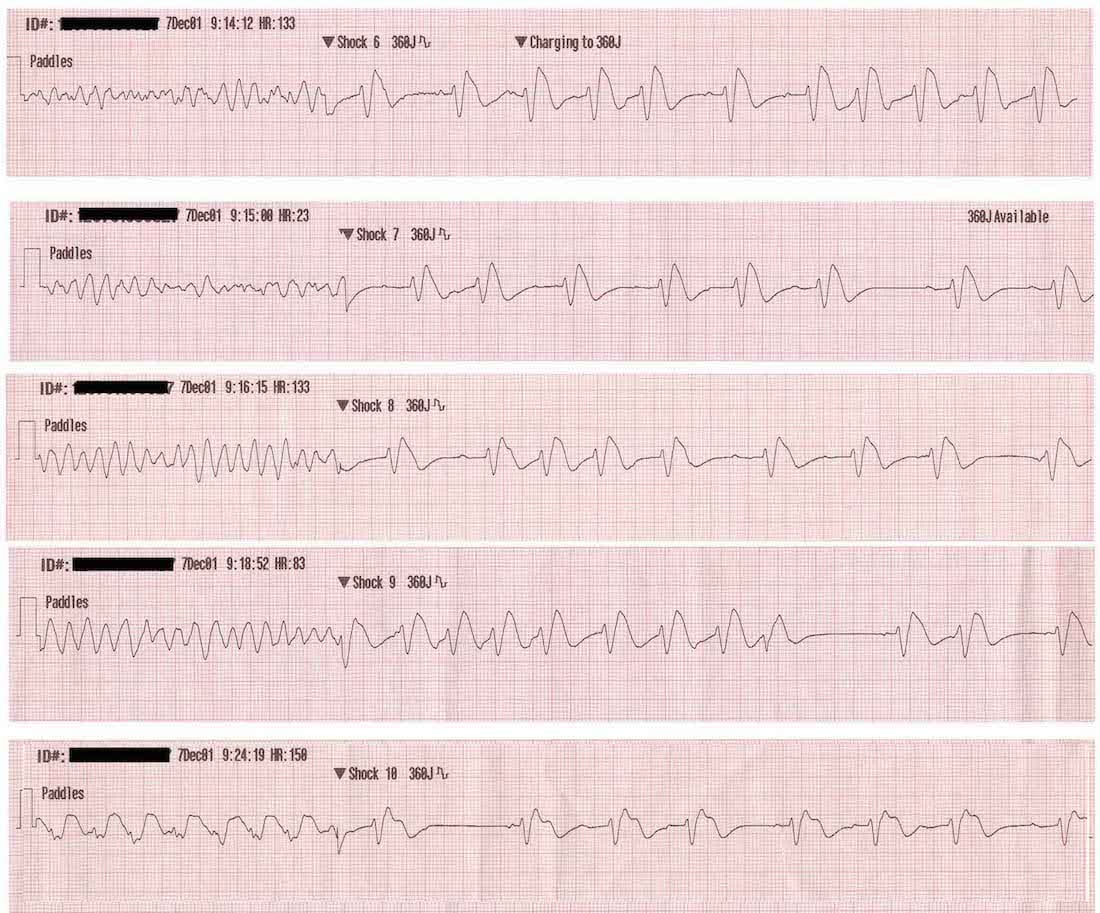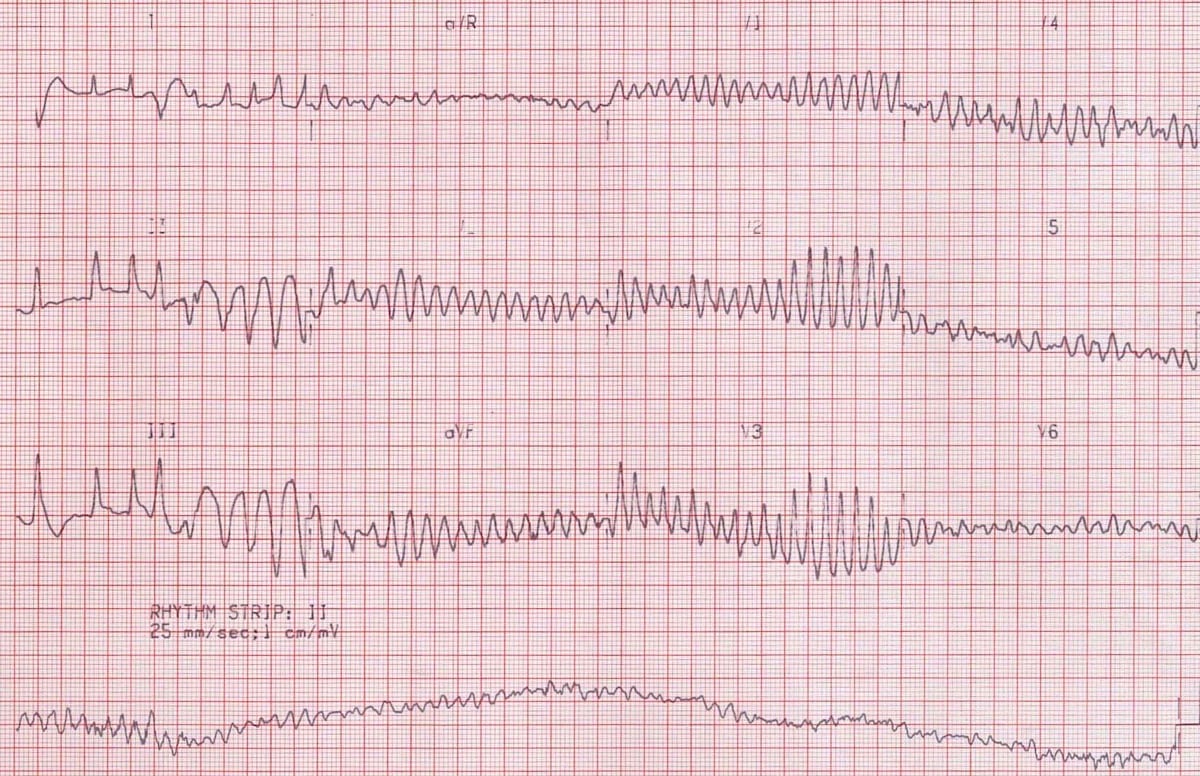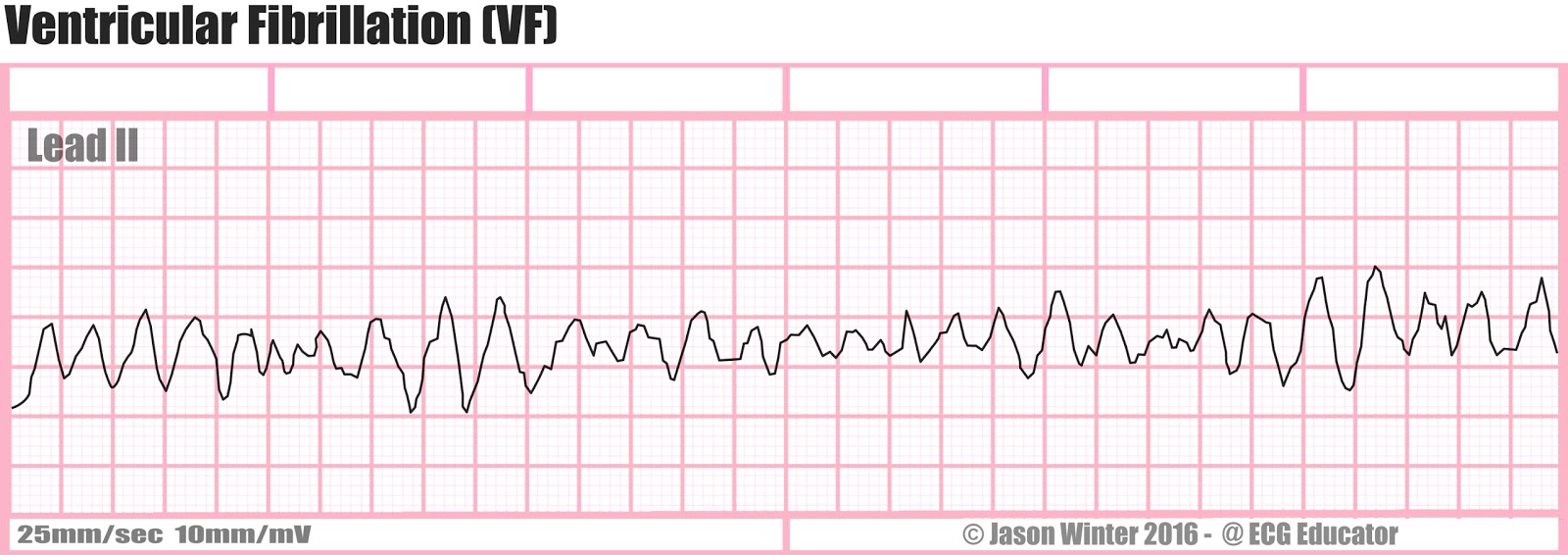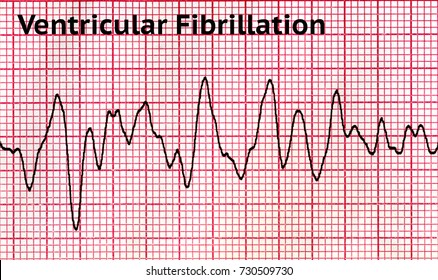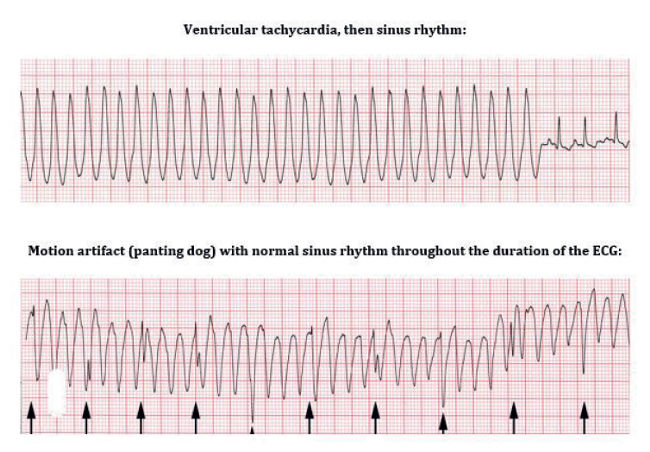Ventricular Tachycardia V Fib Ecg

Such a condition arises mostly in people having valvular hear disease.
Ventricular tachycardia v fib ecg. Sustained vt can disrupt normal blood flow and requires immediate medical treatment. Regardless of etiology and ecg ventricular tachycardia is always a potentially life threatening arrhythmia which requires immediate attention. Ventricular fibrillation vfib ventricular fibrillation vfib is a medical condition in which the heart beats in an abnormal rhythm. Ventricular tachycardia has regular qrs complexes in ecg while fibrillation doesn t.
Treatment for sustained ventricular tachycardia. A wide range of conditions may cause ventricular tachycardia and the ecg is as nuanced as are those conditions. We don t usually take the time to get a 12 lead ecg of this. It is a frequent cause of sudden cardiac death.
Ventricular tachycardia vtach ventricular tachycardia is a medical condition which is associated with the hearts irregular electrical impulses. A dangerous condition related to ventricular tachycardia is ventricular fibrillation v fib. This rapid and irregular electrical activity renders the ventricles unable to contract in a synchronised manner resulting in immediate loss of cardiac output. Ventricular tachycardia may go away on its own within 30 seconds nonsustained v tach or last more than 30 seconds sustained v tach or vt.
V fib ventricular fibrillation is an emergency that requires immediate medical attention. Sustained ventricular tachycardia often requires urgent medical. Ekg reference guide ventricular rhythms includes ekg tracings and assessment tips. Clinical significance of ventricular fibrillation vf ventricular fibrillation vf is the the most important shockable cardiac arrest rhythm.
Ventricular rhythms ekg reference guide. What is the difference between ventricular tachycardia and ventricular fibrillation. The ventricular rate exceeds 400 beats per minute the blood. When it occurs the coordinated contraction of the ventricles is replaced rapid chaotic electrical signals.
Ventricular fibrillation always is an arrest rhythm while pulseless ventricular tachycardia is the arrest rhythm. This abnormal rhythm happens most often in people with heart disease or a prior heart attack. Ventricular tachycardia torsade de pointes. Ventricular tachycardia vt ecg review ventricular tachycardia refers to a wide qrs complex heart rhythm that is a qrs duration beyond 120 milliseconds originating in the ventricles at a rate.
In v fib your lower heart chambers contract in a very rapid and uncoordinated manner. The ventricles suddenly attempt to contract at rates of up to 500 bpm. Ventricular tachycardia is a highly nuanced arrhythmia which originates in the ventricles.
